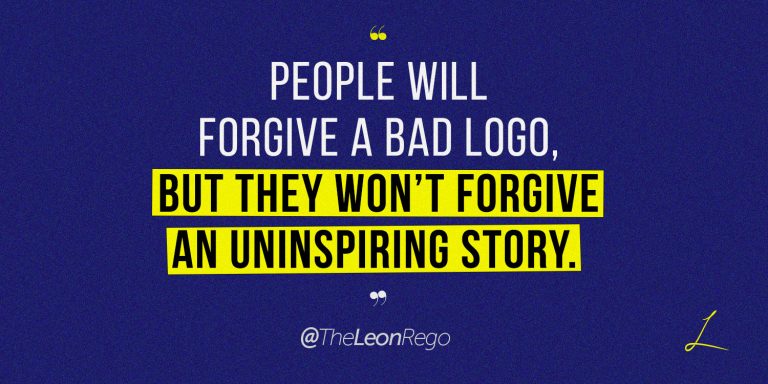If you’re a start-up that’s just received seed or VC funding, this may include a certain allocation for marketing expenses, which means that obviously, you should allocate some of that towards branding, right?
Well, it really depends on what your idea of branding is. While it could be important for a start-up, it may not be the most important thing — at least not in terms of how it’s usually defined. It depends, really, on where you are in your start-up journey.
What is branding, anyway?
Typically, branding is associated with logos, typography, colour palettes… those nice-to-look-at bits. However, these elements may not be the most relevant for a start-up that is still in the early stages of its growth and development.
What’s more important is to identify who you are, what you stand for, how you’re different, why your project, product or service is worth someone’s attention — basically, why anybody should care about what you’re doing. If you’re developing a product or service, figure out your story on why anyone should part with their time or money for it!
This is when you start thinking about content such as key messaging, i.e. the messages that define your identity and the value you offer. Finding out who you are, what you want to say to the world and the response that you seek based on how you position yourself is what branding really is at its core. This guides your thinking, strategy, and even product or service development to an extent.
Once you have these fundamentals figured out, only then does it make sense to consider other aspects of branding, because this process helps you discover aspects of your venture that you may not have thought of before, such as certain USPs you have that your competitors don’t. It’s important to be able to articulate these in a compelling manner, as the key messages for your brand. Importantly, this can also help you understand how you can position yourself differently from your competitors.
Of course, although not imperative, there’s merit in working with a branding or marketing agency that can guide the process of distilling the essence of your brand and helping you communicate its USPs. But because you know your product or service like no one else, you are in the best position to come up with the points your key messages are based on, if not the actual messages themselves. Often, I’ve found that these messages become the company’s manifesto, and give it a renewed sense of clarity and purpose.
What if you don’t have a branding or marketing budget?
Never mind those agencies or freelance designers that argue that the look and feel of your brand are everything, what’s really crucial when you don’t have much of a budget is that you realise that your identity is more about your story and why you (or your offerings) matter. This means spending more time thinking about what you’re going to say, how you’re going to say it, who you’re going to say it to — and crucially, where. People will forgive a bad logo, but they won’t forgive an uninspiring story.
How are positioning and perceptions set?
Who defines your ‘brand’? You, of course, but only to a certain extent. How people actually perceive it and how they interact with it is eventually up to them. The decision to love or hate it, to care or not about your offering is made by the consumers themselves.
Your priority should be to create the kind of content that engages people meaningfully. Be very observant and examine all the feedback that you’re getting, whether it’s on social media or through conversations with your audience, and then fine-tune your story and maybe even your offerings.
Is it ok for branding and content to change or evolve over time?
Over time, when you have a better understanding about how you can really create value for your audience, you might want to change some superficial or even fundamental aspects of your brand. Perhaps there are some facets of your offering that are important to your customers, but you weren’t talking about them enough. Maybe your positioning has to broaden to incorporate these value drivers, or even shift altogether, to bring them into focus.
For example, let’s say you proclaim that you design the most beautiful shoes in the world, but actually, they are perceived by your audience to be the most comfortable instead. What you might want to focus on is the comfort as much as the beauty or maybe even more on the comfort than on the beauty. This, then effectively changes the positioning of your brand.
The point here is, as a start-up, don’t dive so deep into branding during the early days that you’re not able to change your visual identity or tweak your story. As with most hasty decisions, that could be a costly compromise.
To sum up, your identity is integral to how your clients see and interact with your brand, and so it is the aspect of branding you should be most passionate about. Figure out who you are and how your brand creates value first, and the look and feel can follow later. But if you choose to pay more attention to whether your logo stands out before you even know what that logo represents, you might find it challenging to establish a strong identity later on.
If you prefer to watch the video instead, here it is.
If you’re interested in Leonard (Leon) Rego’s insights on business, marketing and his brutally honest take on life, subscribe to his YouTube channel, or find him on Facebook, Instagram, Medium and Twitter as @theleonrego.
